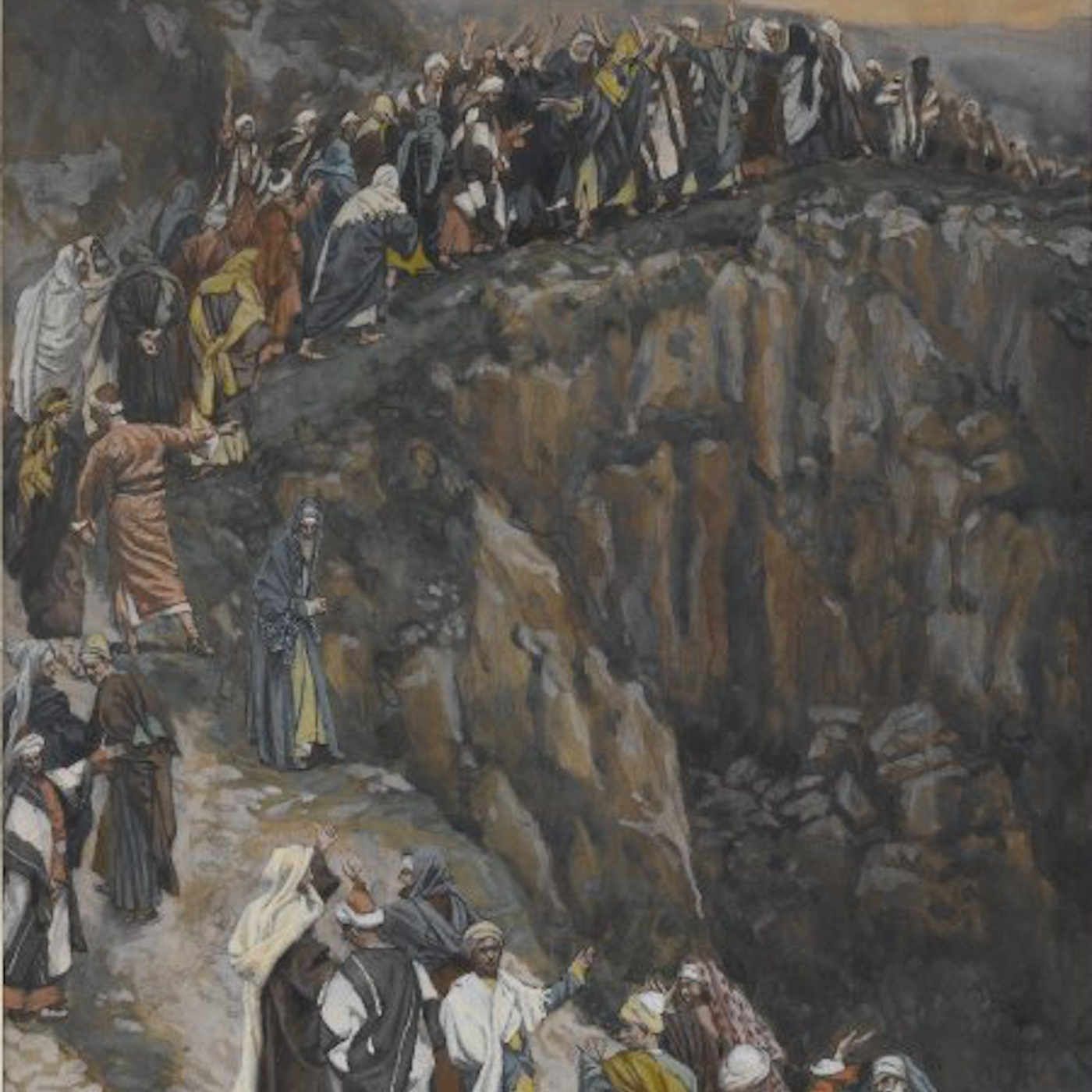When the people in the synagogue heard this, they were all filled with fury. They rose up, drove him out of the town, and led him to the brow of the hill on which their town had been built, to hurl him down headlong. But he passed through the midst of them and went away. Luke 4:28–30
One of the first places Jesus went to begin His public ministry was His own home town. After entering the Synagogue and reading from the Prophet Isaiah, Jesus proclaimed that the prophecy of Isaiah was now fulfilled in His very person. This caused His townspeople to be outraged at Him, thinking He was blaspheming. So they shockingly sought to immediately kill Jesus by driving Him out of their town to the brow of a hill off which they meant to throw Him. But then something fascinating happened. Jesus “passed through the midst of them and went away.”
The Father eventually permitted the grave evil of the death of His Son to take place, but only in His time. It’s unclear from this passage how Jesus was able to avoid being killed right then at the beginning of His ministry, but what’s important to know is that He was able to avoid this because it was not His time. The Father had more for Jesus to do before He would permit Him to offer His life freely for the salvation of the world.
This same reality is true for our own lives. God does permit evil to happen, at times, because of the irrevocable gift of free will. When people choose evil, God will allow them to proceed—but always with a caveat. The caveat is that God only permits evil to be inflicted upon others when that evil is able to be ultimately used for God’s glory and for some form of good. And it is only permitted in God’s time. If we do evil ourselves, choosing sin rather than the will of God, then the evil that we do will end in our own loss of grace. But when we are faithful to God and some external evil is imposed upon us by another, God permits this only when that evil can be redeemed and used for His glory.
The best example of this is, of course, the passion and death of Jesus. A far greater good came forth from that event than the evil itself. But it was only permitted by God when the time was right, in accord with God’s will.
Reflect, today, upon the glorious fact that any evil or any suffering inflicted upon you unjustly can end in the glory of God and the greater salvation of souls. No matter what you may suffer in life, if God permits it, then it is always possible for that suffering to share in the redeeming power of the Cross. Consider any suffering you have endured and embrace it freely, knowing that if God permitted it, then He certainly has some greater purpose in mind. Surrender that suffering over with the utmost confidence and trust and allow God to do glorious things through it.
God of all wisdom, I know that You know all things and that all things can be used for Your glory and for the salvation of my soul. Help me to trust You, especially when I endure suffering in life. May I never despair when treated unjustly and may my hope always be in You and in Your power to redeem all things. Jesus, I trust in You.Source of content: catholic-daily-reflections.comCopyright © 2024 My Catholic Life! Inc. All rights reserved. Used with permission via RSS feed.Featured image above: The Brow of the Hill near Nazareth By James Tissot


